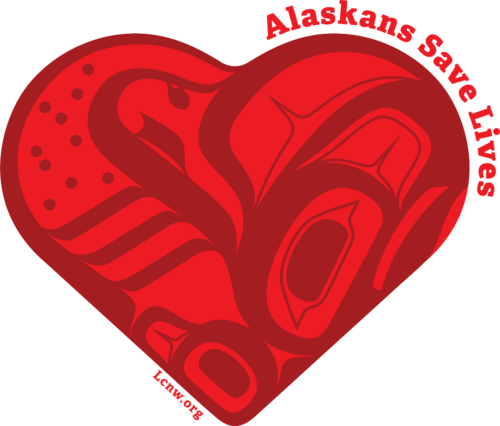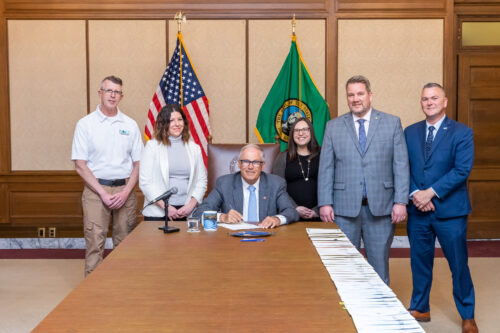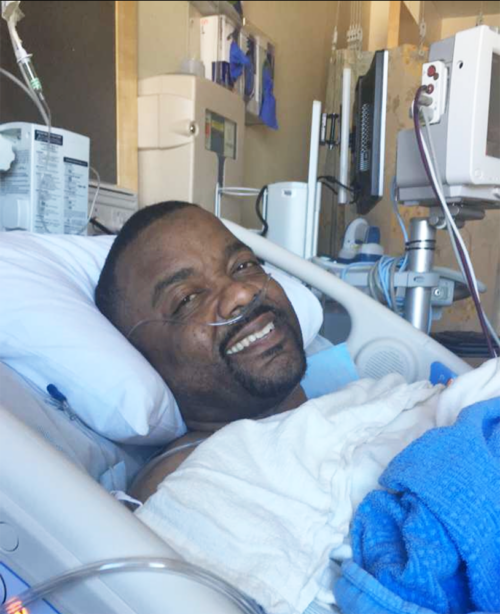 In response to the recent news story about a Southwest Airlines flight turned around mid-flight in order to return a human heart to Seattle, we’d like to provide some information around the organ donation process and transportation of organs, particularly those intended for transplant.
In response to the recent news story about a Southwest Airlines flight turned around mid-flight in order to return a human heart to Seattle, we’d like to provide some information around the organ donation process and transportation of organs, particularly those intended for transplant.
We’d like to clarify that LifeCenter Northwest was not involved with the procurement or transportation of the heart in this story. We cannot provide details specific to this situation as it took place in California (outside our service area), we can only share information about how our organization manages the planning and communication around organ recovery and transportation between a donation site and a transplant center.
Before an organ recovery for donation can occur the allocation process must be completed. This is the process of following national allocation policy to identify patients in need of a transplant who are a match to the organ donor. Once potential transplant recipients are identified for each organ that is able to be donated the organ recovery team from LifeCenter Northwest and the transplant teams for each potential organ recipient make a plan to determine a timeline for the organ recovery, preparation for the transplant recipients, and transportation of the organs to the corresponding transplant center. Because one organ donor may be able to donate up to eight organs (heart, liver, right and left lung, pancreas, two kidneys, and intestine) this process requires a great deal of communication and planning.
For thoracic organs (heart and lungs), the team from the transplant center travels to the hospital in which the organ donation is taking place to procure the organs themselves. Once the transplant team has removed and packaged the organ for transit, they personally transport it directly to their patient. An organ intended to be transplanted into a waiting patient will not leave the direct possession of the transplant team during transportation.
The surgical recovery team from LifeCenter Northwest manages the procurement of abdominal organs (kidneys, liver, pancreas, and intestine). After the recovery of these organs the LifeCenter Northwest team oversees the transport of each organ within our service area (Alaska, Montana, North Idaho, and Washington). If the distance between the donation hospital and the transplant center necessitates a flight, we work closely with a private charter flight service to transport the organs to transplant centers within our region. Sometimes, particularly when an organ recovery takes place in Alaska, a commercial flight may be the most efficient option for transporting abdominal organs. When this is the case, the organs are always accompanied by the surgical recovery team from LifeCenter Northwest.
In a situation where a recipient match is made to a patient outside our service area, we contract with a courier service that picks the organ up at the donation hospital and is met by the transplant team of the waiting patient for delivery.
Organs may also be recovered from a donor for research, or in the case of the heart, for the removal and processing of heart valves for transplantation at a later time. Heart valves can be used to help repair cardiac damage from infection or disease and are commonly used to help pediatric patients with congenital cardiac defects.
As an American Association of Tissue Banks accredited tissue recovery organization, LifeCenter facilitates the recovery of tissue (including heart for valves) for donation at some hospitals in Washington and Montana, however we do not oversee the processing of donated tissue.
Here at LifeCenter, it is our mission to work together to save lives through organ and tissue donation. In addition, we are dedicated to serving our donor families and helping provide comfort and care as they grieve the loss of their loved one, and to educating the communities we serve by being a resource for any questions about organ and tissue donation and transplantation. Please feel free to reach out to us with any donation questions you have or for information on the process at (877) 275-5269 or info@lcnw.org




